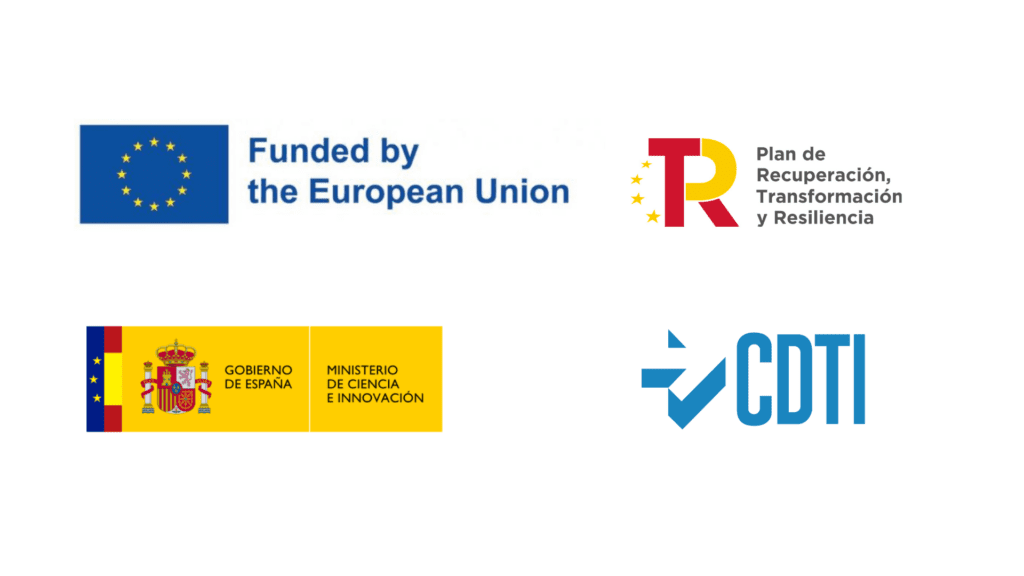Meet Dr. Soria
Hello, I am Dr. José Manuel Soria, Director of the Genomics of Complex Diseases Unit at the Institut de Recerca Sant Pau in Barcelona, as well as CSO and co-founder of Exheus.


I am passionate about biomedical research in the field of human genetics and complex diseases, and specialize in Personalized Medicine and omics data acquisition.
With more than 20 years of experience in biomedical research, I have published a total of 142 scientific articles with 3740 citations and an H-index of 34. I have led 27 national projects and 7 international projects, as well as directed several PhD theses. In addition, I have 6 patents in my career.
Among my research projects, the following stand out:
- GAIT Project: Genetic analysis of idiopathic thrombophilia.
- RETROVE Project: Risk of Venous Thromboembolic Disease.
- ONCOTHROMB Project: New markers related to Thrombosis and Cancer.
- AIRTOP and MIRTO Projects: Individual risk assessment of thrombosis in oncology patients.
My commitment to biomedical research continues to be one of my main motivations, and in this blog I would like to be able to share my knowledge in this field to advance the improvement of people’s health and quality of life.
Now then, let’s get started.
Blog Introduction
The first entry I want to dedicate to put on the table the principles and values we want to convey, as well as what content and topics we will be dealing with, without closing the door to any scientific topic that may arise in the future.
Our goal is to disseminate scientific content based on truthful information, with clear and verifiable scientific evidence, based on principles of rigor and transparency.
We aim to promote scientific culture and a critical spirit, which will help us to understand what is happening around us in the field of health.
At this point, it is time to introduce the term health.
The World Health Organization (WHO) defines it as “a state of complete physical, mental and social well-being and not merely the absence of disease or infirmity”. On this global approach to health we will develop the topics that we will be breaking down in this Blog.
Let’s start by focusing on the concept of health itself.
Having a good state of health depends on several factors:
There are genetic or hereditary components, which are not modifiable, and environmental factors or situations that affect health and well-being, which can be prevented and therefore modified.
The integration of all these factors (genetic and environmental) opens up great possibilities for improving the diagnosis, prevention and treatment of diseases on an individualized basis, in other words, for recovering health. But being able to know the environmental factors or situations that keep us healthy, also opens the door to not getting sick, maintaining that state of complete physical and mental wellbeing referred to by the WHO.
In this sense, the medicine we practice is progressively moving from being a reactive medicine, based on disease, to a personalized, predictive and preventive medicine focused on the health of the individual, what we know as Personalized Medicine [1].


In all the advances in Personalized Medicine, the so-called omics sciences (Genomics, Transcriptomics, Epigenomics) play a fundamental role in generating an enormous amount of individualized data [2]. These data are essential, not only in volume but also in quality, and their management (processing, analysis and storage) in a standardized way is essential for the implementation of Personalized Medicine.
Aware of these needs, in recent years, countries such as the USA, Japan, England, France, Finland, Germany and Spain, among others, have been implementing strategies and plans for personalized precision medicine or genomic medicine. In parallel to these strategies, it is also important to address the debate on the regulation, by governmental and medical entities, that the clinical implementation of Personalized Medicine is generating, including the use of new ethical standards [3,4].
In other words, we are facing a paradigm shift in science and medicine.
The integration of clinical and molecular information (omics data) to understand the biological basis not only of each disease to treat it individually, but, what may be more revolutionary, why we stay healthy.
Therefore, we are facing a transcendental change that will change the way we act.
Just as important as regaining our health is maintaining it.
Winston Churchill, British Prime Minister during World War II, defined health in the mid-20th century as “a transitory state, which does not bode well”.
Our goal is that this transitory state (health) is as long as possible and from this blog we want to disseminate all the Science that is making it possible.


